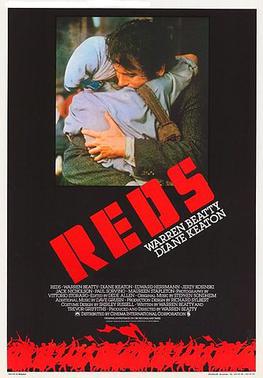The important contribution of John Reed to the revolutionary movement here in America
As usual with such commercial enterprises the order of things gets switched in the wrong direction. The love affair between Reed (played by Beatty) and budding writer and early feminist Louise Bryant (and a little third party intervention by playwright Eugene O’Neill, played by Jack Nicholson) is set against the backdrop of the Russian Revolution not the other way around, but such is cinematic license. More than most film depictions this one mainly gets the story straight; the early free-lance journalism tied to the Mexican Revolution; the bohemian life of pre-World War I Greenwich Village in New York City including their patrons; the socialist fight against American participation in World War I; the fight among socialist (and anarchists) over support to the Russian Revolution; and, an interesting segment on the in-fighting in the early communist movement between the foreign language federations and the Reed-led “Natives” which was ‘resolved’ in at Communist International headquarters. Those ‘natives’ who in the course of events would form the leadership of the party through most of the twenties when the cadre still wanted to make a revolution here and not just cheer on the Russian Revolution from afar. A nice touch in the film is the interplaying of commentaries by those, friend and foe, who knew or knew of Reed or were around during this time. See this movie.

No comments:
Post a Comment